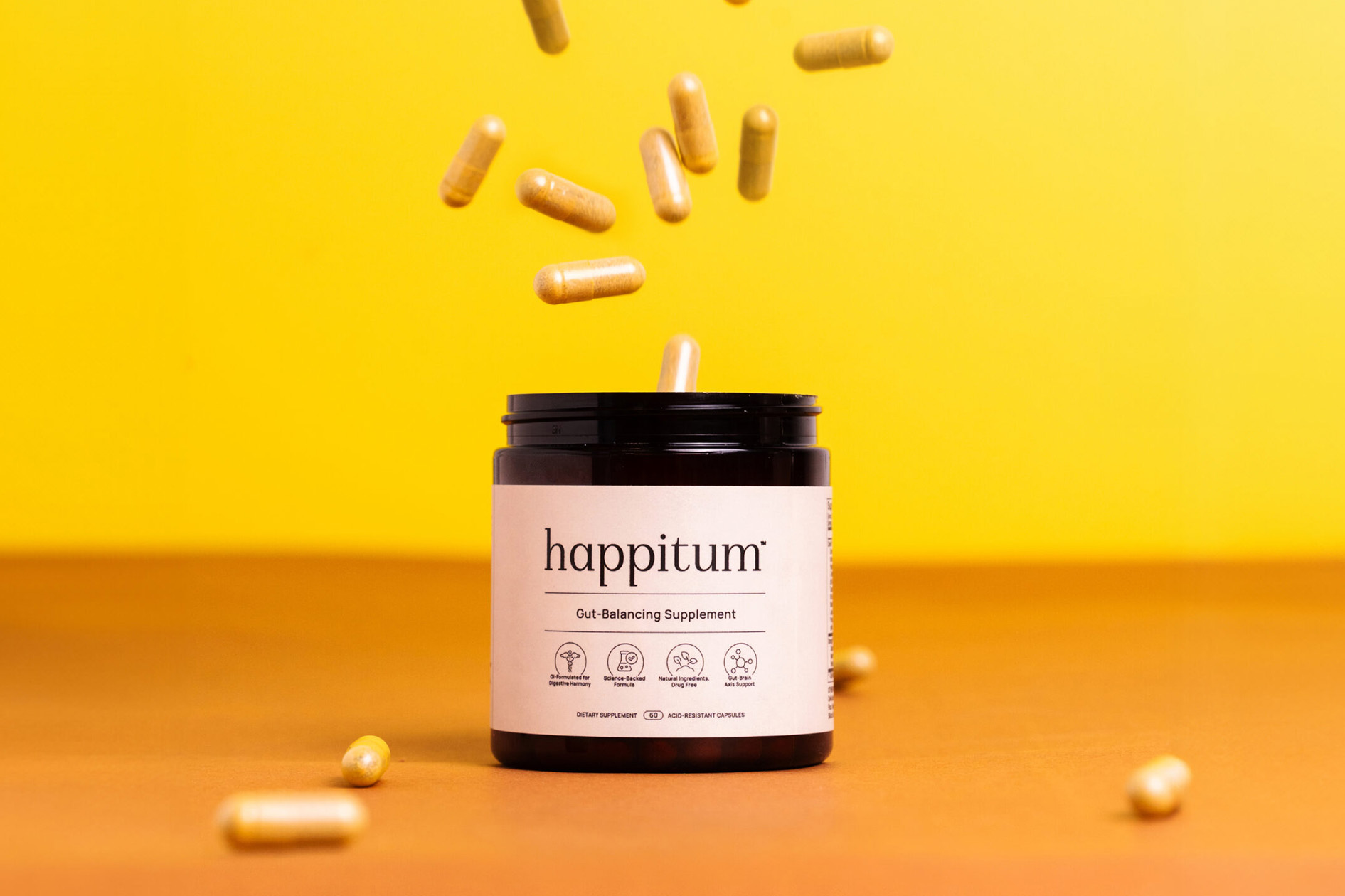Happitum™ Gut Supplement: A Multifactorial Approach to Digestive Health
Written by Dr. Brandon Rieders, Gastroenterologist
In recent years, gut health has gained significant attention due to its role in overall wellness. Many people turn to gut supplements, but not all are created equal. A truly effective gut supplement should be multifactorial, addressing multiple aspects of digestive health such as bloating, digestion, and stress management. For example, Happitum™ combines ingredients like digestive enzymes, peppermint, ginger, and ashwagandha to support digestion and alleviate stress, two factors closely linked to gut function.
Studies show that ingredients like peppermint oil can significantly reduce symptoms of irritable bowel syndrome (IBS), including abdominal pain and bloating (Alam et al., 2013). Similarly, digestive enzymes like amylase and protease help break down food more efficiently, improving nutrient absorption and reducing digestive discomfort (Brennan et al., 2020). With this comprehensive approach, multifactorial supplements like Happitum™ stand out in the crowded market of gut health products.
In addition to improving digestive function, a well-rounded gut supplement should also focus on enhancing gut barrier integrity and reducing inflammation. Ingredients like marshmallow root and slippery elm are known for their ability to soothe and protect the gut lining, creating a healthy environment for digestion. Marshmallow root, for example, has been used to treat inflammation of the mucous membranes and can help support the body’s natural healing process (McKay & Blumberg, 2006). This further enhances the multifactorial nature of a supplement like Happitum™, making it a superior choice for comprehensive gut health.
By incorporating these scientifically supported ingredients, Happitum™ provides a holistic approach to digestive wellness. Whether dealing with occasional bloating, stress-related gut issues, or the need for overall digestive support, a multifactorial supplement is key to achieving long-term benefits.
Citations
Alam, M. S., et al. (2013). “Efficacy of peppermint oil in the treatment of irritable bowel syndrome: a meta-analysis of randomized controlled trials.” BMC Complementary and Alternative Medicine, 13(1), 22.
Brennan, A. M., et al. (2020). “The role of digestive enzymes in enhancing nutrient bioavailability.” Journal of Nutrition and Metabolism, 2020.
McKay, D. L., & Blumberg, J. B. (2006). “A review of the bioactivity and potential health benefits of peppermint tea (Mentha piperita L.).” Phytotherapy Research, 20(8), 619-633.



